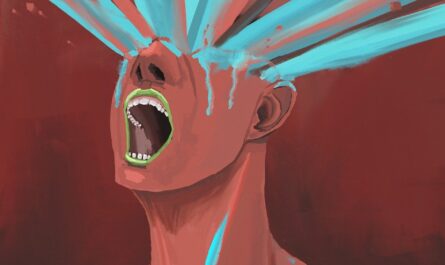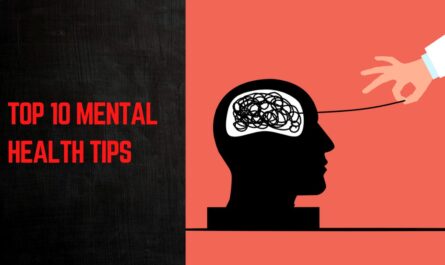Hiccups: What Causes Them, What They Feel Like, How to Treat Them, and How to Stop Them From Happening
Hiccups treatment & more: “Hic… Hic… Hic…” Everyone has had this happen. Whether you are talking to someone, eating, or giving a talk at a meeting, hiccups can suddenly appear (and they are often annoying). But what are hiccups? Why do we get them, and more importantly, how can we make them stop?
This easy-to-understand guide will tell you everything you need to know about hiccups. It will cover what causes them, what they feel like, how to treat them effectively, and ways to prevent them. Keep reading, and you might be able to avoid your next awkward hiccup moment!

What Are Hiccups?
What They Are Hiccups happen when your diaphragm (the muscle that separates your chest from your stomach area) suddenly tightens up without you wanting it to. This tightening pushes air out of your lungs. As the air rushes past your vocal cords (the parts of your throat that help you make sound), it makes that special “hic” noise.
Different Kinds of Hiccups Not all hiccups are the same. There are a few different types:
- Short-Term Hiccups:
These are the regular hiccups that most people get. They usually don’t last long and are not harmful. - Long-Lasting and Very Long-Lasting Hiccups:
These are not as common but are more of a problem. Long-lasting hiccups go on for more than 48 hours. Very long-lasting hiccups can last for over two months. These kinds of hiccups might be a sign of a health issue.
What They Feel Like and Problems They Can Cause
Common Feelings When You Have Hiccups You will know you are getting hiccups when:
You feel a sudden, uncontrolled twitch in your chest or throat. You make the “hic” sound. The hiccups happen regularly and might briefly make it hard to breathe or talk.

Problems From Hiccups That Last a Long Time While normal hiccups are just annoying, hiccups that don’t go away can cause problems, such as:
- Feeling tired because you can’t sleep well
- Having trouble eating or drinking
- Feeling stressed, worried, or embarrassed because the hiccups last for a long time
Hiccups in Babies: Should You Worry?
Parents often get worried when their newborns start hiccupping, but hiccups in babies are usually not a problem. Babies often hiccup because of feeding (especially eating too fast), swallowing air, or because their digestive system is still developing.
What Causes Hiccups?
Main Reasons for Hiccups Why do we get hiccups? That’s a good question. Common reasons include:
- Eating too much food or eating too quickly
- Drinking fizzy drinks
- Sudden changes in temperature (for example, drinking hot tea and then cold water)
- Strong feelings like excitement or stress
Things That Can Cause Short-Term Hiccups Everyday hiccups can be caused by:
- Spicy food irritating your throat
- Swallowing air when you chew gum
- Laughing too hard
Hiccups That Last a Long Time:
Health Problems That Might Be the Reason Hiccups that don’t go away might be caused by:
- Gastroesophageal reflux disease (GERD), which is when stomach acid comes back up into your throat
- Nerve irritation or damage (for example, problems with the phrenic or vagus nerves)
- Brain problems like strokes or tumors
- Health problems that affect how your body uses energy, like diabetes
How Doctors Find Out What’s Causing Hiccups
How Are Hiccups Diagnosed? For short-term hiccups, you usually don’t need to see a doctor. But if you have hiccups that last a long time, doctors will ask about your health history and what symptoms you have.
Tests: Used to Find the Cause Lab Tests Blood tests can help find conditions like infections or problems with how your body works.
Imaging Tests: X-rays, MRIs, or CT scans can help see if there are problems in your chest, diaphragm, or brain.
Endoscopy: This test looks for anything unusual in your esophagus (the tube that goes from your mouth to your stomach) or stomach that might be causing the hiccups.
How to Get Rid of Hiccups
Quick Things to Try That Often Work When you really want to stop hiccups fast, try these:
- Hold your breath for 10-15 seconds.
- Drink a glass of cold water slowly, taking small sips.
- Swallow a teaspoon of sugar or honey.
Breathing and Body Position Techniques
- Diaphragmatic Breathing:
Take deep breaths from your belly to help your diaphragm relax. - Knee-to-Chest Pose:
Sit down and pull your knees up to your chest to put pressure on your diaphragm.
Eating and Drinking Methods
- Ways to Eat and Drink Sip water very slowly or gargle with it.
- Suck on ice cubes.
- Eat a spoonful of peanut butter or yogurt.
Pressure Point Techniques Pressing on certain spots on your body might help:
- Carotid Massage: Gently rub the sides of your neck.
- Eye Socket Pressure: Gently press just above your nostrils.
When to Try Other Treatments If your hiccups last for more than 48 hours, it’s time to see a doctor.
Medical Treatment for Hiccups
Doctors might suggest:
- Chlorpromazine or Baclofen to calm your nerves.
- Metoclopramide for stomach problems like GERD.
Medical Procedures for Very Stubborn Hiccups For very bad cases, options include:
- Nerve block injections
- Getting a device called a diaphragm pacemaker implanted
Tips for Preventing Hiccups
Can You Stop Hiccups Before They Start? While you can’t always stop hiccups from happening, some things can help you get them less often:
- Avoid eating too much or drinking too quickly.
- Drink less fizzy drinks and alcohol.
- Manage your stress levels by doing relaxing things.
Lifestyle Changes to Avoid Hiccups:
- Eat smaller meals throughout the day.
- Practice eating slowly and paying attention to your food.
- Sit or stand upright for 30 minutes after eating to reduce stomach acid coming back up.
What to Expect With Hiccups
1. How Long Do Hiccups Usually Last?
Short-term hiccups usually only last a few minutes, but hiccups that don’t go away can last for days if not treated.
2. Do Hiccups Go Away on Their Own?
Yes, short-term hiccups almost always stop by themselves. However, hiccups that last a long time might need medical help.
Fun Facts About Hiccups
World Records for the Longest Hiccups Fun fact? The longest time someone had hiccups was 68 years! Hats off to Charles Osborne for living through that!
Rare Cases of Hiccups That Last a Very Long Time Some cases are so rare and serious that they end up being written about in medical books or shown in documentaries.
Extra Tips
Things You Should and Shouldn’t Do to Manage Hiccups
- Do stay hydrated and avoid fizzy drinks.
- Don’t ignore hiccups that last for more than 2 days.
What to Eat When You Have Digestive Problems and Hiccups?
If you have problems with your digestion, stick to bland, easy-to-digest foods like baked chicken, rice, or bananas.




One thought on “How to Get Rid of Hiccups Fast”